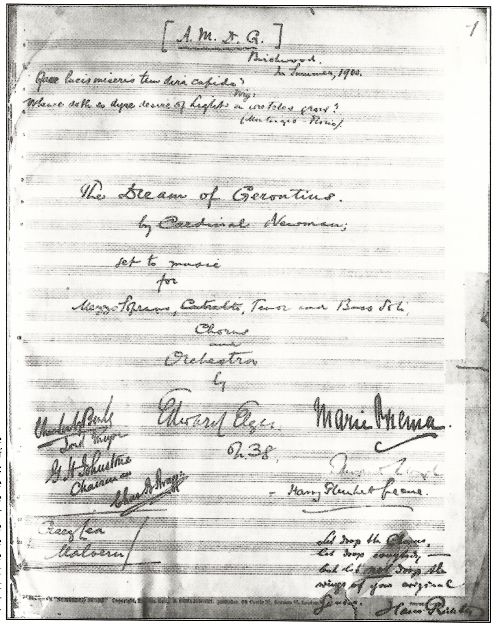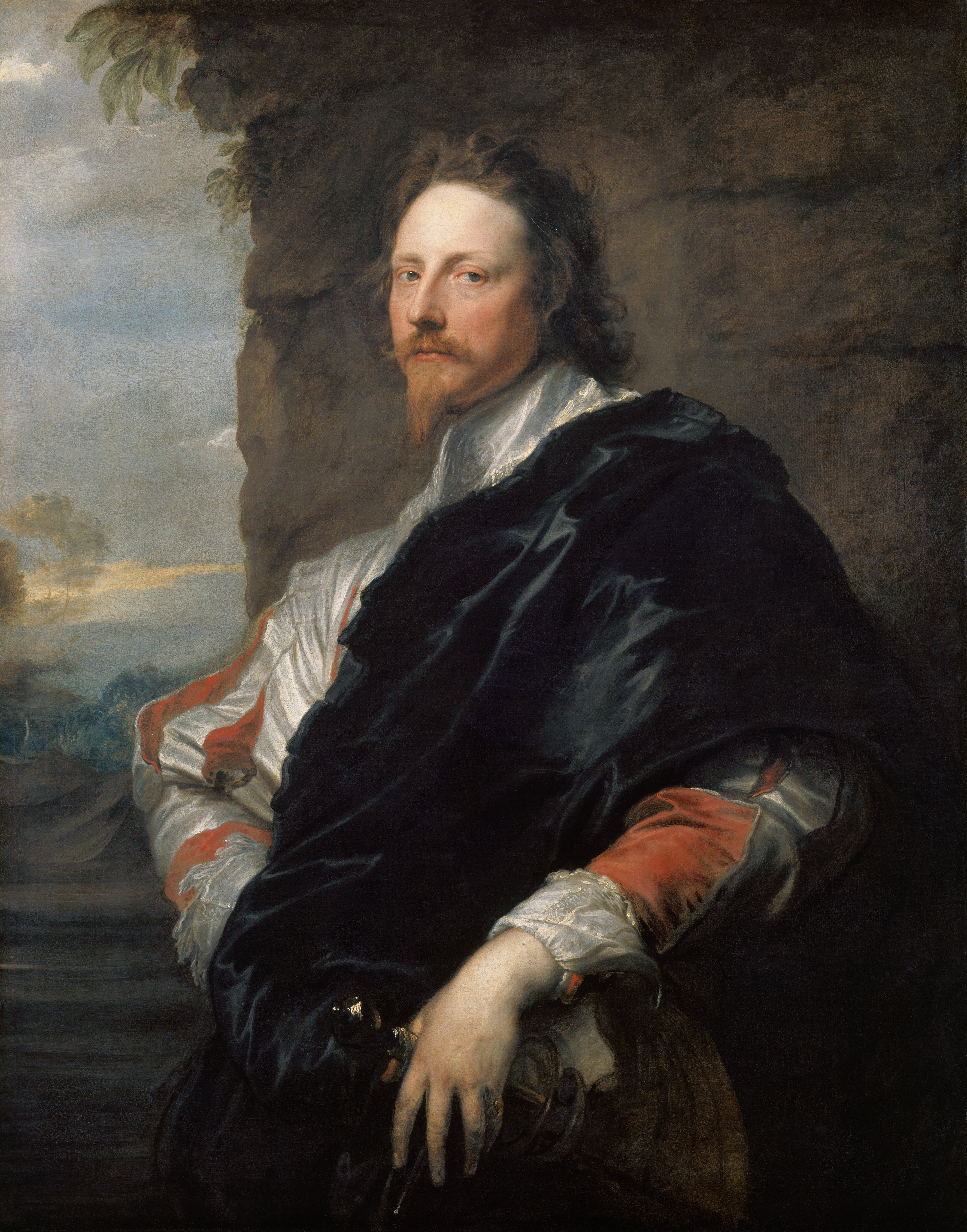|
Elgar
Sir Edward William Elgar, 1st Baronet, (; 2 June 1857 – 23 February 1934) was an English composer, many of whose works have entered the British and international classical concert repertoire. Among his best-known compositions are orchestral works including the '' Enigma Variations'', the '' Pomp and Circumstance Marches'', concertos for violin and cello, and two symphonies. He also composed choral works, including '' The Dream of Gerontius'', chamber music and songs. He was appointed Master of the King's Musick in 1924. Although Elgar is often regarded as a typically English composer, most of his musical influences were not from England but from continental Europe. He felt himself to be an outsider, not only musically, but socially. In musical circles dominated by academics, he was a self-taught composer; in Protestant Britain, his Roman Catholicism was regarded with suspicion in some quarters; and in the class-conscious society of Victorian and Edwardian Britain, he was ... [...More Info...] [...Related Items...] OR: [Wikipedia] [Google] [Baidu] |
Enigma Variations
Edward Elgar composed his ''Variations on an Original Theme'', Op. 36, popularly known as the ''Enigma Variations'', between October 1898 and February 1899. It is an orchestral work comprising fourteen variations on an original theme. Elgar dedicated the work "to my friends pictured within", each variation being a musical sketch of one of his circle of close acquaintances (see musical cryptogram). Those portrayed include Elgar's wife Alice, his friend and publisher Augustus J. Jaeger and Elgar himself. In a programme note for a performance in 1911 Elgar wrote: In naming his theme "Enigma", Elgar posed a challenge which has generated much speculation but has never been conclusively answered. The Enigma is widely believed to involve a hidden melody. After its 1899 London premiere the ''Variations'' achieved immediate popularity and established Elgar's international reputation. History Elgar described how on the evening of 21 October 1898, after a tiring day's teaching, he ... [...More Info...] [...Related Items...] OR: [Wikipedia] [Google] [Baidu] |
The Dream Of Gerontius
''The Dream of Gerontius'', Op. 38, is a work for voices and orchestra in two parts composed by Edward Elgar in 1900, to text from the poem by John Henry Newman. It relates the journey of a pious man's soul from his deathbed to his judgment before God and settling into Purgatory. Elgar disapproved of the use of the term " oratorio" for the work (and the term occurs nowhere in the score), though his wishes are not always followed. The piece is widely regarded as Elgar's finest choral work, and some consider it his masterpiece. The work was composed for the Birmingham Music Festival of 1900; the first performance took place on 3 October 1900, in Birmingham Town Hall. It was badly performed at the premiere, but later performances in Germany revealed its stature. In the first decade after its premiere, the Roman Catholic theology in Newman's poem caused difficulties in getting the work performed in Anglican cathedrals, and a revised text was used for performances at the Three Ch ... [...More Info...] [...Related Items...] OR: [Wikipedia] [Google] [Baidu] |
Violin Concerto (Elgar)
Edward Elgar's Violin Concerto in B minor, Op. 61, is one of his longest orchestral compositions, and the last of his works to gain immediate popular success. The concerto was composed for the violinist Fritz Kreisler, who gave the premiere in London in 1910, with the composer conducting. Plans by the recording company His Master's Voice to record the work with Kreisler and Elgar fell through, and the composer made a recording with the teenaged Yehudi Menuhin that has remained in the catalogues since its first release in 1932. Even though Elgar's music fell out of fashion in the middle of the twentieth century, and the concerto's reputation as one of the most difficult in the violin repertoire grew (because of its use of constant multiple-stopping, fast and unorthodox string crossings, and massive, rapid shifting around the instrument), it nevertheless continued to be programmed and played by acclaimed violinists. By the end of the 20th century, when Elgar's music was restored t ... [...More Info...] [...Related Items...] OR: [Wikipedia] [Google] [Baidu] |
Pomp And Circumstance Marches
The ''Pomp and Circumstance Marches'' (full title ''Pomp and Circumstance Military Marches''), Op. 39, are a series of five (or six) marches for orchestra composed by Sir Edward Elgar. The first four were published between 1901 and 1907, when Elgar was in his forties; the fifth was published in 1930, a few years before his death; and a sixth, compiled posthumously from sketches, was published in 1956 and in 2005–2006. They include some of Elgar's best-known compositions. Title The title is taken from Act III, Scene 3 of Shakespeare's ''Othello'': Farewell the neighing steed and the shrill trump, The spirit-stirring drum, th'ear-piercing fife, The royal banner, and all quality, Pride, ''pomp, and circumstance'' of glorious war! But also, on the score of the first march, Elgar set as a motto for the whole set of marches a verse from Lord de Tabley's poem "The March of Glory",Maine: ''Works'' pp. 196–7 which (as quoted by Elgar's biographer Basil Maine) begin ... [...More Info...] [...Related Items...] OR: [Wikipedia] [Google] [Baidu] |
William Henry Reed
William Henry "Billy" Reed (29 July 18762 July 1942) was an English violinist, teacher, composer, conductor and biographer of Sir Edward Elgar. He was leader of the London Symphony Orchestra for 23 years (1912–1935), but is best known for his long personal friendship with Elgar (1910–1934) and his book ''Elgar As I Knew Him'' (1936), in which he goes into great detail about the genesis of the Violin Concerto in B minor. The book also provides a large number of Elgar's sketches for his unfinished Third Symphony, which proved invaluable sixty years later when Anthony Payne elaborated and essentially completed the work, although Reed wrote that in his view the symphony could not be completed. His name appears in various forms: William Henry Reed, W. H. Reed, W. H. "Billy" Reed, Billy Reed and Willie Reed. He was known to his friends as Billy. Biography William Henry Reed was born in Frome, Somerset. He studied at the Royal Academy of Music in London under Émile Sauret,Gr ... [...More Info...] [...Related Items...] OR: [Wikipedia] [Google] [Baidu] |
Cello Concerto (Elgar)
Edward Elgar's Cello Concerto in E minor, Op. 85, his last notable work, is a cornerstone of the solo cello repertoire. Elgar composed it in the aftermath of the First World War, when his music had already gone out of fashion with the concert-going public. In contrast with Elgar's earlier Violin Concerto, which is lyrical and passionate, the Cello Concerto is for the most part contemplative and elegiac. The October 1919 premiere was a debacle because Elgar and the performers had been deprived of adequate rehearsal time. Elgar made two recordings of the work with Beatrice Harrison as soloist. The American premiere was given on 21 November 1922 by the Philadelphia Orchestra under Leopold Stokowski with Jean Gerardy, cello. The 'Musical Courier' wrote: "About the Elgar there was no dissenting opinion. It is a long work, and it ambles on and on and on, utterly without distinction, utterly without inspiration." The work did not achieve wide popularity until the 1960s, when a recording ... [...More Info...] [...Related Items...] OR: [Wikipedia] [Google] [Baidu] |
Worcester, England
Worcester ( ) is a cathedral city in Worcestershire, England, of which it is the county town. It is south-west of Birmingham, north-west of London, north of Gloucester and north-east of Hereford. The population was 103,872 in the 2021 Census. The River Severn flanks the western side of the city centre. It is overlooked by Worcester Cathedral. Worcester is the home of Royal Worcester Porcelain, composer Edward Elgar, Lea & Perrins, makers of traditional Worcestershire sauce, the University of Worcester, and ''Berrow's Worcester Journal'', claimed as the world's oldest newspaper. The Battle of Worcester in 1651 was the final battle of the English Civil War, during which Oliver Cromwell's New Model Army defeated King Charles II's Royalists. History Early history The trade route past Worcester, later part of the Roman Ryknild Street, dates from Neolithic times. It commanded a ford crossing over the River Severn, which was tidal below Worcester, and fortified by the Britons ... [...More Info...] [...Related Items...] OR: [Wikipedia] [Google] [Baidu] |
Master Of The King's Musick
Master of the King's Music (or Master of the Queen's Music, or earlier Master of the King's Musick) is a post in the Royal Household of the United Kingdom. The holder of the post originally served the monarch of England, directing the court orchestra and composing or commissioning music as required. The post is broadly comparable to that of poet laureate. It is given to people eminent in the field of classical music; they have almost always been composers. Duties are not clearly stated, though it is generally expected the holder of the post will write music to commemorate important royal events, such as coronations, birthdays, anniversaries, marriages and deaths, and to accompany other ceremonial occasions. The individual may also act as the sovereign's adviser in musical matters. Since 2004 the appointment has been for a fixed term of ten years rather than for life, as previously. The King's Musick In the 14th century professional music-making in England was theoretically regul ... [...More Info...] [...Related Items...] OR: [Wikipedia] [Google] [Baidu] |
The Wand Of Youth
''The Wand of Youth'' Suites No. 1 and No. 2 are works for full orchestra by the English composer Edward Elgar. The titles given them by Elgar were, in full: ''The Wand of Youth'' (Music to a Child's Play) First Suite, Op. 1a (1869–1907) and ''The Wand of Youth'' (Music to a Child's Play) Second Suite, (Op. 1b). History As a boy Elgar composed some tunes for use in a play staged by the young members of the Elgar family. He noted the tunes down in a sketchbook and in 1907, four decades later, he arranged the music as the two ''Wand of Youth'' suites. Elgar also used material from some of the dance music he wrote when as a young man he was employed at what was then the Worcester City and County Lunatic Asylum, now Powick Hospital. He gave the suites the opus number 1 in recognition that they were his earliest surviving compositions, albeit now scored for full orchestra with the mature Elgar’s mastery of orchestration. Many years later Benjamin Britten followed Elgar’s pr ... [...More Info...] [...Related Items...] OR: [Wikipedia] [Google] [Baidu] |
Broadheath, Worcestershire
Lower Broadheath is a village and civil parish in the Malvern Hills district of Worcestershire, England. According to the 2011 census it had a population of 1,728. The parish also includes Upper Broadheath. The village is about 3 miles north-west of Worcester. There are many housing estates in the village, including the Jacomb estate (Jacomb Road, Jacomb Drive, Jacomb Close and Rectory Close). The village has a village hall, church, post office and shop, a village green (containing a football pitch, running track and many children's play areas) and a large village common. There is also a primary school (Broadheath C.E. Primary School). The school contains around 150 children, from the age of four up to eleven. There are also two pubs in the village. History Broadheath is the birthplace of the English composer Edward Elgar Sir Edward William Elgar, 1st Baronet, (; 2 June 1857 – 23 February 1934) was an English composer, many of whose works have entered the Bri ... [...More Info...] [...Related Items...] OR: [Wikipedia] [Google] [Baidu] |
Three Choirs Festival
200px, Worcester cathedral 200px, Gloucester cathedral The Three Choirs Festival is a music festival held annually at the end of July, rotating among the cathedrals of the Three Counties (Hereford, Gloucester and Worcester) and originally featuring their three choirs, which remain central to the week-long programme. The large-scale choral repertoire is now performed by the Festival Chorus, but the festival also features other major ensembles and international soloists. The 2011 festival took place in Worcester from 6 to 13 August. The 2012 festival in Hereford took place earlier than usual, from 21 to 28 July, to avoid clashing with the 2012 Summer Olympics. The event is now established in the last week of July. The 300th anniversary of the original Three Choirs Festival was celebrated during the 2015 festival, which took place from 25 July to 1 August in Hereford (the landmark 300th meeting of the Three Choirs does not fall until after 2027 due to there being no Three Choirs ... [...More Info...] [...Related Items...] OR: [Wikipedia] [Google] [Baidu] |








